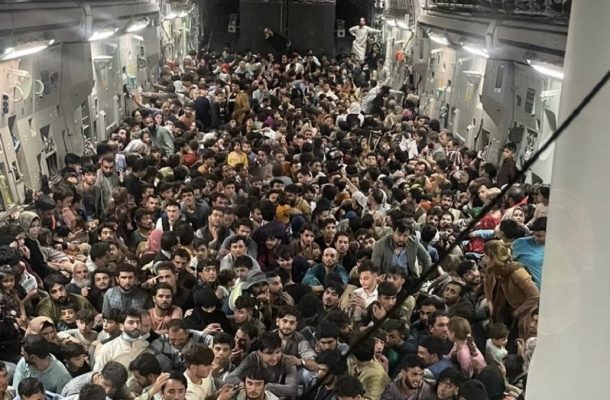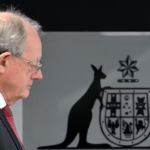Afghanistan’s ex-leaders have no-one to blame but themselves

The Taliban have taken over Kabul, and Afghanistan generally. This is first and foremost due to the political failure of Afghan governments at all levels over the past 20 years.
The support and opportunities given to the Afghans by the UN, its member states, and other organisations over that period to build a new nation, underpinned by good government and good governance, was squandered due to chronic ethnic and other factionalism, incompetence, and corruption.
Following the retaliatory raids in late 2001 against Al Qaeda in response to the 9/11 attacks against the US, and the concurrent removal of Afghanistan’s then Taliban government, the UN initiated a comprehensive process of nation-building. The aim, and way forward as identified in the UN-endorsed Bonn Agreement dated 5 December 2001, was to establish “a broad-based, gender sensitive, multi-ethnic, and fully representative government.”
Rebuilding a nation, almost from scratch, is complex and takes time. The UN formulated a two-stage plan: a UN-led “transition” decade (2001-2014) followed by an Afghan-led and owned “transformation” decade (2015-2024). During transition, the UN Assistance Mission Afghanistan (UNAMA) worked closely with the Afghans to rebuild the basic political, societal, economic, and security institutions of government. Their 2014 goal was a stable functional state.
Transition achievements were to include a new constitution and national and provincial governments elected democratically by universal suffrage, societal basics such as the rule of law, health care and education, especially for women, economic growth, especially through building essential infrastructure and the exploitation of Afghanistan’s vast mineral and energy wealth, and national security through a new defence force and national and border police – the Afghan National Security Forces (ANSF).
The UN-mandated International Security Assistance Force Afghanistan (ISAF) was created to establish, train, and support the ANSF. Security objectives also included reconciliation with the Taliban, and non-interference by foreign states or non-state organistions in Afghanistan’s internal affairs
Transformation was essentially consolidating the above. Ideally by 2024, Afghanistan would no longer be an aid-dependent state. However, transformation objectives would be largely dependent on the outcomes of transition.
The warning signs were already apparent during the latter part of transition that outcomes would not be met. Notwithstanding the dedication and commitment by many talented senior and ordinary Afghans, national stability and functionality was in trouble.
Corruption and blatant patronage were rampant, as was narcotics trafficking. Electoral fraud was high, and inefficiencies within the administration were widely evident. The leadership was not only not winning, but clearly losing “hearts and minds.”
The security situation was also grim. Again, despite the competence and commitment by many in the ANSF, there were many negatives.
Leadership was often poor, there were critical gaps in combat and medevac support, there were multiple logistics problems some of which were due to shortages of equipment because it was stolen or sold, there were “phantom establishments” for which some commanders were drawing pay while, concurrently, serving troops went unpaid for extended periods.
Morale suffered and desertions were high. Combat casualties of some units were often high because of specific Taliban targeting, which was as much combat-related as psychological.
2010 to 2012 was the period of the surge to beat back the Taliban, but despite a lull, it didn’t work. It was already apparent at the time of transformation in 2014 that victory would be determined by politics, not military warfare. And the Afghan government did nothing to reverse their image or circumstances.
On the contrary, the six-month standoff between Ashraf Ghani and Abdullah Abdullah over who won the 2019 presidential election was frustratingly seen as politicians blatantly putting power and corruption ahead of the national interest.
There are multiple stories circulating as to why the ANSF capitulated throughout Afghanistan with barely a fight. Clearly the Taliban’s psychological warfare was very effective, as was the ANSF’s loss of trust in the government’s leadership. It’s not a case that those ANSF who capitulated support the Taliban. The crunch was that, without US/NATO support generally and no US air support in particular, the Kabul government simply wasn’t worth dying for.
Given all the above, Biden’s decision to fully withdraw from “this forever” conflict is understandable. There would never have been a good time to do so. For Biden, it was a case of when, not if. It was going to happen, but not as unexpectedly as this.
Where to from here? The actions, reactions, and future role and planning of Afghanistan’s immediate and near neighbours (Pakistan, China, Russia and the Central Asian Republics, Iran, plus India, Saudi Arabia, and Turkey) will be important.
Refugees are a major humanitarian challenge. . Besides those evacuated by air, the majority will most likely head to Iran or the Central Asian Republics, at least in the first instance. They will need to work closely with the UNHCR, especially to minimise the consequences and maximise resettlement.
And the Taliban. There is every indication they also were surprised by the speed of capitulation, and they are hastily working through the multiple implications. They have yet to revert to their draconian habits of 20 years ago. Have they changed their spots? Have they abandoned negotiations by violence and become accommodating and forgiving, within of course, the guiding parameters of the new Emirate and their interpretation of sharia law? I’m not convinced..
The Australian government’s immediate priority is to evacuate Australians, visa holders, and others it owes. Australia should not be hesitant in speaking directly with the Taliban about evacuation planning. Australia should also be ready to dialogue with Iran, Russia, and the Central Asian Republics on refugee issues.
It is in Australia’s interests to have as many doors open to ensure maximum flexibility, including in Iran’s case, time-saving humanitarian overflight approvals between Kabul and the base at Al Minhad. It just might be needed.
This article was published by the Australian Institute for International Affairs.
Ian is a Presidential Associate of the Australian Institute of International Affairs (AIIA) and the Principal of Ian Dudgeon & Associates. He spent 32 years in the Foreign Affairs and Defence portfolios with postings to Chile, Malaysia, Thailand and Japan.












